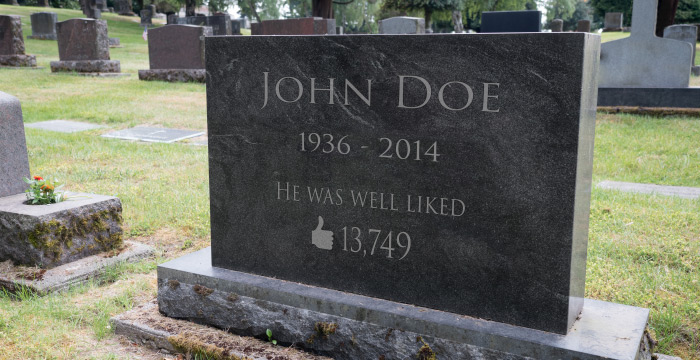Two executive leadership management styles I am occasionally requested to consult on are by-products of the base motivation of the individual leader. The problematic symptoms are very different, and one needs to address the ‘disease.’ Unless you can get the executive to understand their particular disease and have the desire to want to modify the behavior, you cannot mitigate the symptoms.
Popularity
The first disease is an underlying need to be popular while supervising people. This need is rarely admitted, but clearly manifested by actions. Executives that want to be liked have trouble making timely decisions that would upset anyone. They even go so far as to physically disappear so that decisions are delayed or solved by others. These executives rationalize that time will cure the negative emotions a decision may cause. Delayed response may even make a needed, yet unpopular, decision immaterial as it becomes stale. This is not a person who makes principled-based decisions, but one who tries to come up with the most diplomatic answer that puts them in a good light. Their decisions are made with their interest of staying popular in mind, without regard to consistency or what’s best for the company.
An executive whose personality requires approval is vulnerable to one-on-one lobbying resulting in decision reversals. I often hear when dealing with these popularity seekers, is that there is a competition to be the last lobbyist in order to be the most influential before a critical meeting. Lobbyists learn that if you cannot get the leader to a decision you want, the fallback is to request to freeze the decision to another meeting. The executive concludes that it is better to have a late decision rather than an unpopular one.
Investors don’t pay executives for the selfishness of personal popularity, as these symptoms diminish enterprise results. At the same time, popularity as a legacy goal for a leader is not unusual. It creates a condition where a company slowly dies as no one is severely upset until it is over. There are no needed business transformations with a popularity-driven leader as transformations make too many people unhappy and take too much courage. The saddest thing about popularity-driven leaders is when they are shocked at how much residual criticism for enterprise destruction they take after the fact, from the same people who acted as friends while they sat on the throne. Due to the deep-seated physiological need for popularity, this type of leader is almost impossible to remediate.
Respect
The second style of leader I am asked to assist is nearly the opposite of the “people-pleaser.” They don’t care about being popular and usually produce high, consistent results. They don’t always get the deserved credit for these results because they are not necessarily liked by subordinates. For this type of leader, the success of the enterprise far exceeds the goal of them being liked as an individual.
Their subordinate loyalty can be marginal. These leaders have philosophy-based standards that, combined with their experience, cause clarity. They make decisions fast…too fast, in fact. The complaint against this type of leader is that they are too ‘rough’ on employees, don’t listen, and as a result, can drive people out. Their subordinates feel they are not appreciated by this leader, nor will their input matter.
I am occasionally asked to ‘fix’ this type of leader with the goal of making a more harmonious organization. For me, that is not hard…these individuals start off with the correct orientation that they are employed to produce results, not create a legacy of being popular. They are generally direct and honest about how they operate. Because they are enterprise-oriented, they are willing to change if you can couch remediation in terms of making the organization even more successful. They generally have long resented being charged with not being popular but feel popularity has nothing to do with what they are paid to do.
They start with a healthy philosophical-based decision-making process and are winners when it comes to producing results. They demand high standards and ‘do not tolerate fools long.’ They can’t understand why people would not be happy if the enterprise won and decisions are made promptly and correctly. What they need to be taught is that their personal goal should not necessarily be popularity, but rather respect. Respect is the accumulation of career-long consistency and performance. It does not come with as much instantaneous personal reward as popularity.
To understand the ingredients to gaining respect, there are some behavioral requirements. These include:
- The need to control your negative emotions to a level of dependable consistency
- The need to slow down and listen. Listening includes showing the other individual that you understand by repeating back.
- The need to not only pronounce a decision but explain it in philosophy-based rationale. In other words, “I made the decisions for the following reasons,” instead of, “This is the decision, do it.”
- To gain respect, you need to respect others. In fact, the more you respect subordinates, the more they respect you.
The reason why it is easy to improve this type of results-driven leader is that they are dedicated to the enterprise, and thus motivated to change if it helps the enterprise. On the contrary, leaders who are motivated by personal popularity use the enterprise as a vehicle to perpetuate that need, rather than be the decisive manager the company expects.
For the right leader, the epitaph on your tombstone should be ‘the most effective results and respected leader,’ not ‘the most popular leader.’ If you try to be the most popular, you won’t be effective or respected, as popularity is fleeting and produces poor end results.
© 2018 Robert Uhler and THE UHLER GROUP. All rights reserved.








Leave A Comment